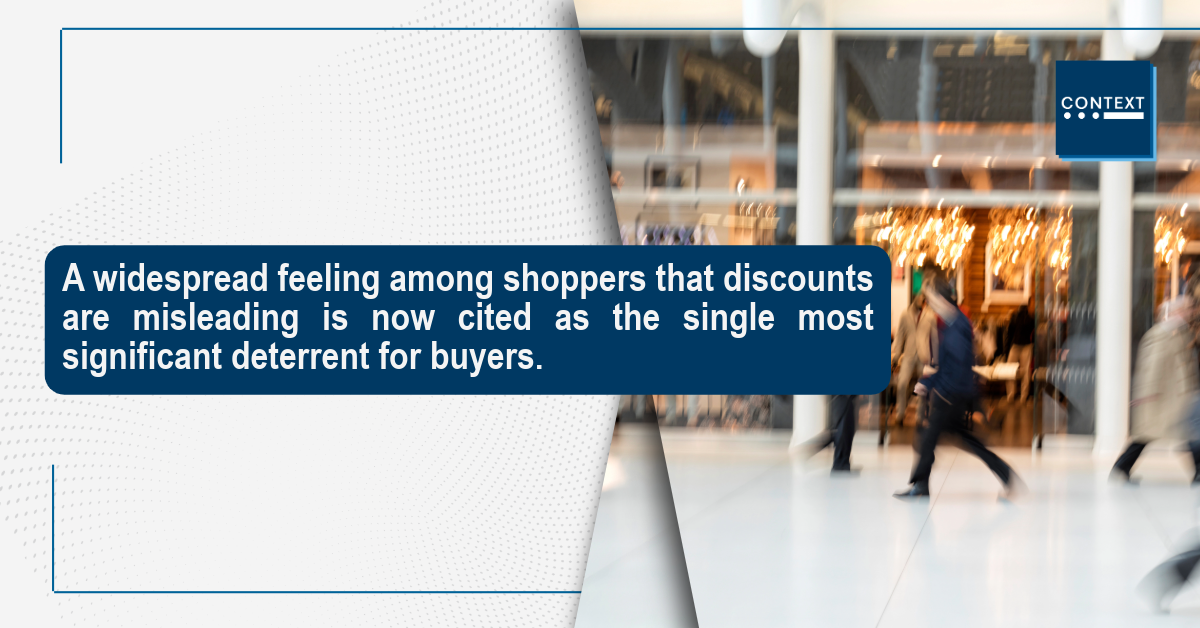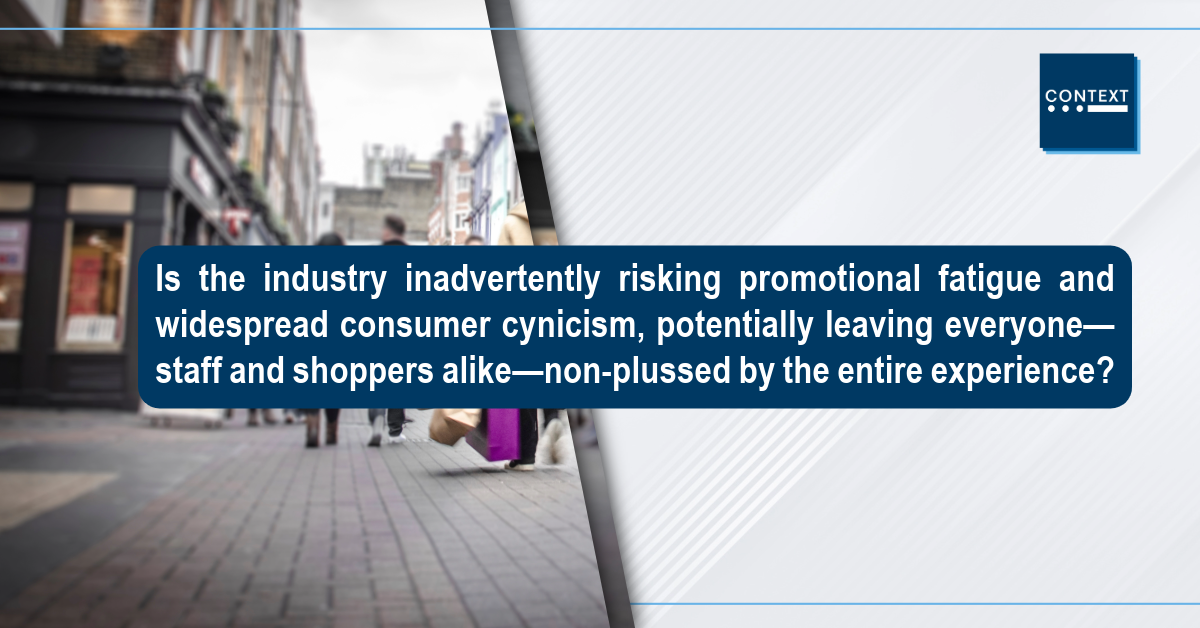Is Black Friday's Early Start Risking Consumer Trust in UK Retail?
The traditional Black Friday
playbook is being aggressively rewritten. This year, major UK
retailers, notably Currys, John Lewis, and Argos, have
initiated their promotional campaigns at the beginning of November—a
full four weeks ahead of the conventional calendar. This
hyper-compression of the promotional cycle is a strategic gamble,
immediately raising a critical question for the entire industry:
Does this aggressive pursuit of early consumer spending
justify the strategic risk of permanently training consumers to
never pay full price?
The Barrier: Perceived Deal Transparency
While current Black Friday surveys
consistently point to technology products as the primary focus
for consumer spending, our research highlights a significant, systemic
barrier: perceived deal transparency. A widespread feeling
among shoppers that discounts are misleading is now cited as the
single most significant deterrent for buyers. This scepticism
erodes the excitement and trust foundational to the success of an
event like Black Friday.

This scepticism is often
well-founded. It doesn't take long for high-profile promotions to
raise questions in the eye of a savvy consumer. A quick analysis of
one of the most prominent computing offers for Black Friday 2025 in
the UK, for instance, reveals a sharply priced PC product with a
price point seemingly identical to a "Back to
School" promotion that concluded just in early September.
The net effect is concerning: this
may not be an exciting, one-off, "must-buy" event, but
merely a repackaging of a previous offer, potentially referencing a
misleadingly inflated "original" price.
“In an environment where shoppers
are struggling to understand what really represents a good deal,
these anomalies can amplify shopper concerns around promotions and
the whole Black Friday experience,” comments James Bates, one of
CONTEXT’s retail industry watchers. “While it initially looks like a
great saving of hundreds of pounds on a solid Windows 11 CoPilot PC,
I can’t help wondering whether tech-savvy Gen Z consumers,
Black Friday’s biggest, most savvy shoppers, are going to do their
homework, see this as potentially misleading, and feel they should
move on.”
Bates adds a pragmatic, though
complex, perspective: “Either way, it’s actually a great laptop at a
compelling price. Would I be tempted? You bet - it’s a relative steal
for any consumers who can see it for the deal it is.” The dilemma,
then, is not the quality of the deal, but the
presentation of the deal and the resulting lack of trust.
The Operational Challenge: Internal Confusion and Front-Line Disconnect
The challenge for retailers is
immensely complex. They must navigate a highly competitive,
fast-moving promotional environment, offering the best deals at the
right time to win market share, all while protecting fragile operating
margins and simultaneously being seen to offer trust and transparency
to the customer.
Crucially, this complexity appears
to trickle down directly to the front line. Store staff often
seem as confused as the shopper, uncertain whether promotions have
appeared before, how long they will truly last, or whether they will
be immediately superseded by better deals in the coming weeks.
One sales representative
highlighted the dilemma perfectly: “This is a great laptop and the
price is amazing! But I can’t tell you if the rebate code will last
after tomorrow. Will there be more deals coming up? Yes, definitely
there will be more every week!”
This internal uncertainty raises a
critical question for leadership: Can a promotional strategy be
truly effective if the staff executing it lack clarity on its value,
duration, and long-term positioning? When the people meant to
sell the deal cannot confidently vouch for its uniqueness or finality,
the customer experience inevitably suffers, further fuelling external cynicism.
Strategic Insight: The Price of Pulling Demand Forward
The dynamics of this increasingly
lengthy and aggressive season seem to be creating ever-bigger
operational and customer experience challenges for retailers. Is the
industry inadvertently risking promotional fatigue and
widespread consumer cynicism, potentially leaving everyone—staff and
shoppers alike—non-plussed by the entire experience?

CONTEXT TotalMarket
data, which provides detailed SKU-level sales tracking across
12 countries, is positioned to deliver actionable insights into
the effectiveness and consumer reception of these early-launch
strategies. Initial findings, available from early December 2025,
will help answer the most critical strategic question:
Do these early promotions
truly drive incremental sales, or do they simply pull demand
forward at a potentially damaging cost to brand equity and
long-term pricing power?
This data will be essential for
retailers and their partners to re-evaluate their promotional
calendars for the coming year and ensure their aggressive tactics
don't ultimately undermine the consumer trust they rely on.
Don't navigate this
strategic gamble in the dark. Get the initial findings on
the effectiveness of early Black Friday strategies and
continuous updates on the latest retail trends and CONTEXT
TotalMarket data analysis by signing up to the CONTEXT
Retail Pulse Newsletter now.